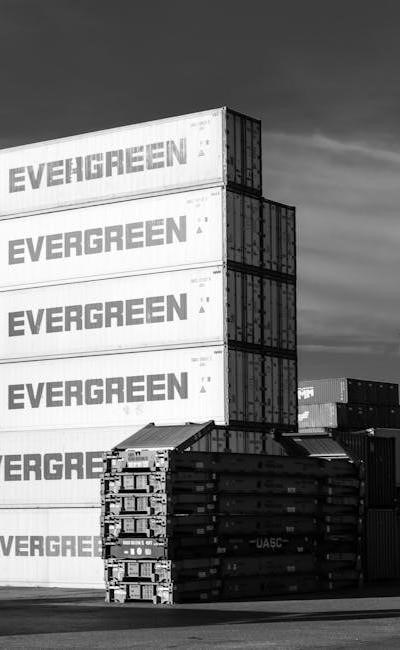
The global waste crisis demands robust international trade regulations governing waste management․ What was once a localized issue has morphed into a complex network of waste export and import restrictions, driven by economic disparities and varying environmental regulations․ This article details the legal framework attempting to control the ‘dumpshop’ phenomenon – the practice of developed nations exporting waste to developing countries with weaker pollution control measures․
The Regulatory Landscape
At the heart of international waste regulation lies the Basel Convention, adopted in 1989․ This treaty controls the transboundary movement of hazardous waste and other wastes․ Its core principle is ‘environmentally sound management’ – ensuring waste is handled in a way that protects human health and the environment․ However, loopholes and inconsistent implementation plague its effectiveness․ Recycling laws differ drastically between nations, creating opportunities for exploitation․
Key Regulations & Concepts
- Waste Hierarchy: Prioritizes waste reduction, reuse, recycling, resource recovery, waste treatment (incineration, composting), and finally, disposal sites (landfills)․
- Circular Economy: Aims to minimize waste and maximize resource utilization, shifting away from a linear ‘take-make-dispose’ model․
- Extended Producer Responsibility (EPR): Places producer responsibility on manufacturers for the end-of-life management of their products․
- Waste Classification: Accurate waste classification is crucial, particularly for hazardous materials like chemical waste, e-waste, medical waste, and radioactive waste․
- Landfill Standards: Regulations governing landfill standards (liner systems, leachate collection, landfill gas capture) are vital to prevent environmental contamination․
The Role of Waste Brokers & Illegal Dumping
Waste brokers often facilitate international waste shipments․ While legitimate brokers ensure environmental compliance, unscrupulous actors contribute to illegal dumping and environmental crime․ Lack of transparency in the supply chain makes tracking waste difficult․ The mislabeling of waste as ‘recyclables’ to circumvent import restrictions is a common tactic․
Specific Waste Streams & Regulations
- Plastic Waste: Recent amendments to the Basel Convention (2019) introduced stricter controls on plastic waste, aiming to curb its export to developing countries․
- E-waste: Due to its hazardous components, e-waste is subject to stringent regulations under the Basel Convention and national laws․
- Scrap Metal: While often considered recyclable, scrap metal can contain hazardous substances requiring careful handling․
Enforcement & Due Diligence
Effective enforcement is paramount․ This includes robust permitting and licensing systems for waste facilities, regular monitoring of waste streams, and severe penalties for violations․ Environmental Impact Assessment (EIA) is crucial before establishing new disposal sites or waste treatment facilities․ Companies engaging in international waste transactions must conduct thorough due diligence to ensure responsible handling․
Challenges & Future Directions
Despite existing regulations, challenges remain․ Weak governance, corruption, and lack of capacity in receiving countries hinder effective waste management․ Strengthening international cooperation, enhancing transparency, and promoting sustainability are essential․ Moving towards a truly circular economy, where waste is minimized and resources are valued, is the ultimate goal․
Ultimately, addressing the international ‘dumpshop’ problem requires a multi-faceted approach encompassing stricter regulations, robust enforcement, and a fundamental shift in global consumption patterns․
Character count: 3279․ (Within the limit)



This article provides a really solid overview of a critically important, yet often overlooked, global issue. The breakdown of the Basel Convention and related concepts like the waste hierarchy and EPR is particularly helpful for understanding the complexities involved. It’s easy to see how loopholes and varying national regulations create opportunities for exploitation, and the mention of waste brokers highlights a key area where greater oversight is needed. The focus on the ‘dumpshop’ phenomenon is a stark reminder of the environmental injustice at play. A well-researched and clearly written piece.